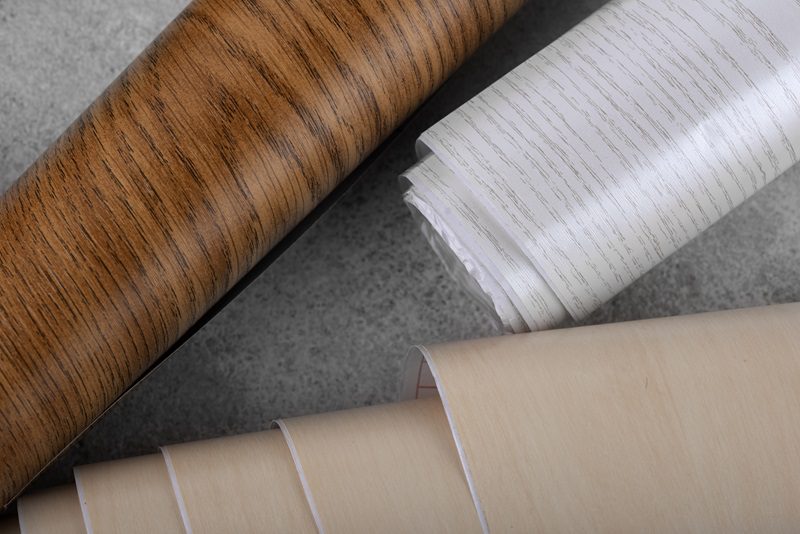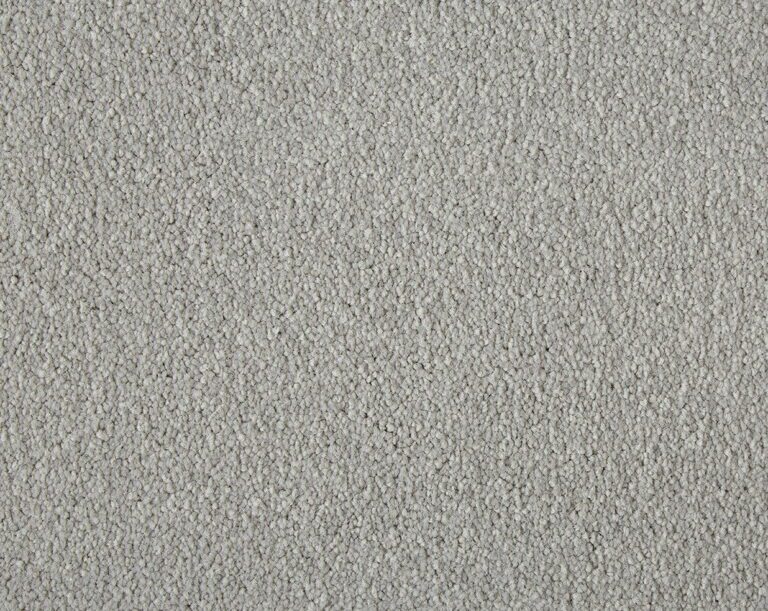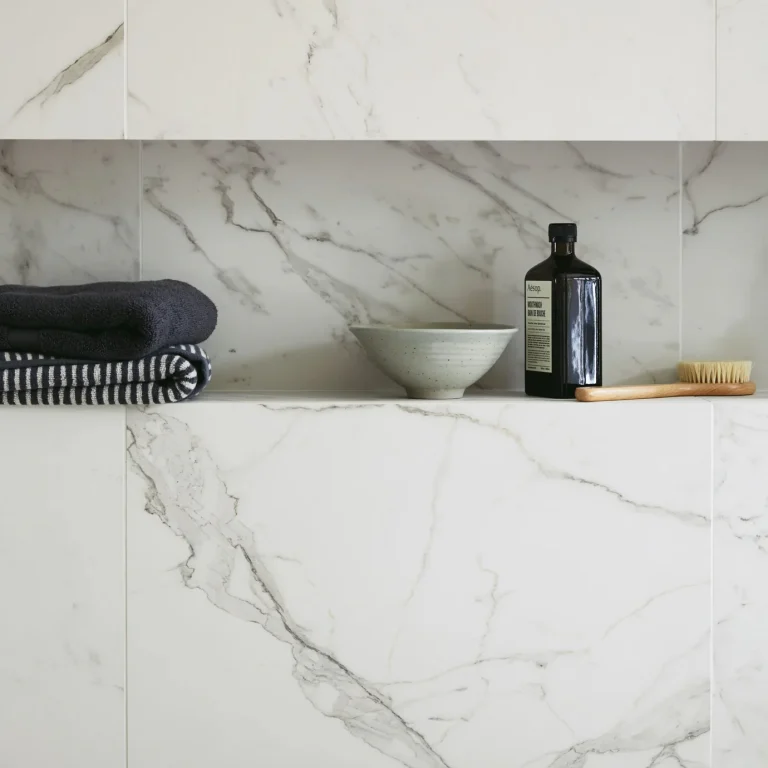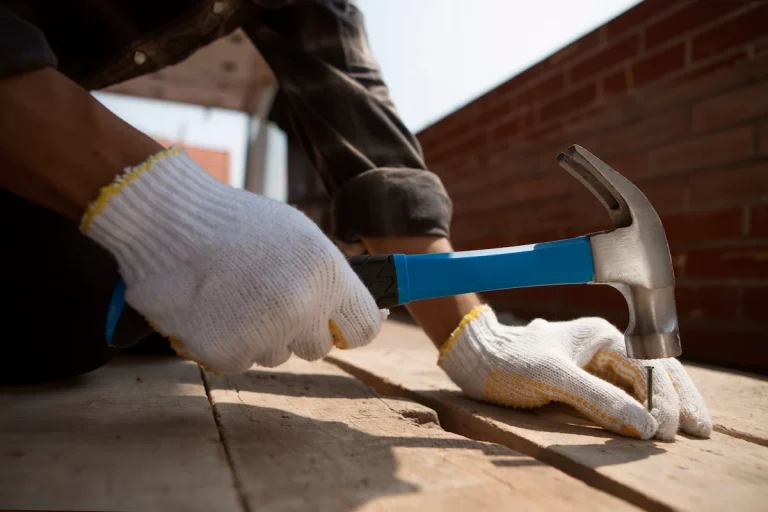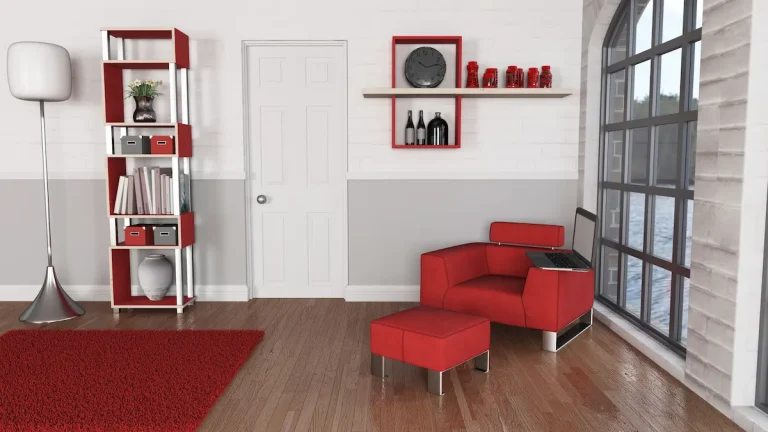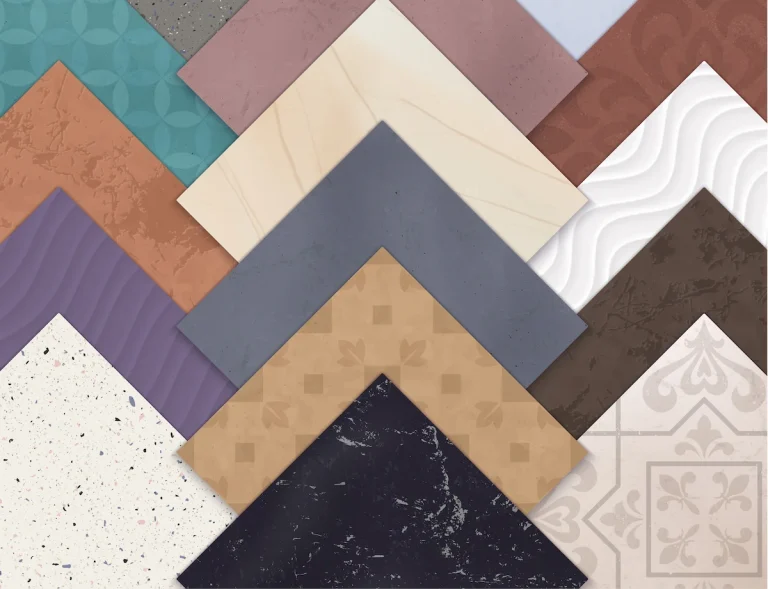Vinyl flooring has become one of the most popular choices for modern homes and commercial spaces alike—but is vinyl flooring good for your needs? Known for its affordability, versatility, and ease of maintenance, vinyl has come a long way from its early designs. In this article, we’ll explore the pros and cons of vinyl flooring, assess its performance in different rooms, and help you decide whether it’s the right fit for your space. Whether you’re renovating on a budget or seeking a stylish, practical solution, vinyl flooring could be exactly what you’re looking for.
What Is Vinyl Flooring Made Of?
Vinyl flooring is manufactured using a combination of synthetic materials, including PVC, plasticisers, and stabilisers, which are moulded into sheets or tiles. The design layer is then added to replicate the appearance of natural materials, followed by a wear layer for durability and protection.
In the production process of luxury vinyl flooring, manufacturers like Karndean and Luvanto utilise advanced technologies to enhance the level of detail in the design layer. This includes high-definition printing techniques that can mimic the look of wood, stone, or tile with remarkable realism. The layering technique involves carefully stacking each component to ensure optimal performance and aesthetics.


See product: Luvanto Design Warm Grey Stone
The Pros Of Vinyl Flooring
Vinyl flooring offers numerous advantages, including affordability, easy installation, durability, low maintenance requirements, water resistance, and a wide array of design options to suit any decor.
One of the key pros of vinyl is its cost-effectiveness, making it a great choice for those looking to renovate on a budget. The easy installation process adds to its appeal, with many homeowners opting for DIY projects or relying on professional services offered by retailers like TEKA Flooring.
The longevity of vinyl ensures that your investment lasts for years to come, providing a durable and wear-resistant surface that can withstand heavy foot traffic.
Minimal upkeep is another advantage, saving you time and effort in cleaning and maintenance, which is important for busy households or commercial spaces.
Being water-resistant, vinyl is an ideal choice for areas prone to moisture, such as kitchens, bathrooms, and basements, offering peace of mind against spills and stains.
The design versatility of vinyl flooring is unparalleled, with options to mimic various materials like hardwood, stone, or tile, providing endless possibilities for enhancing your space with styles from brands like Karndean Design Flooring Collection.
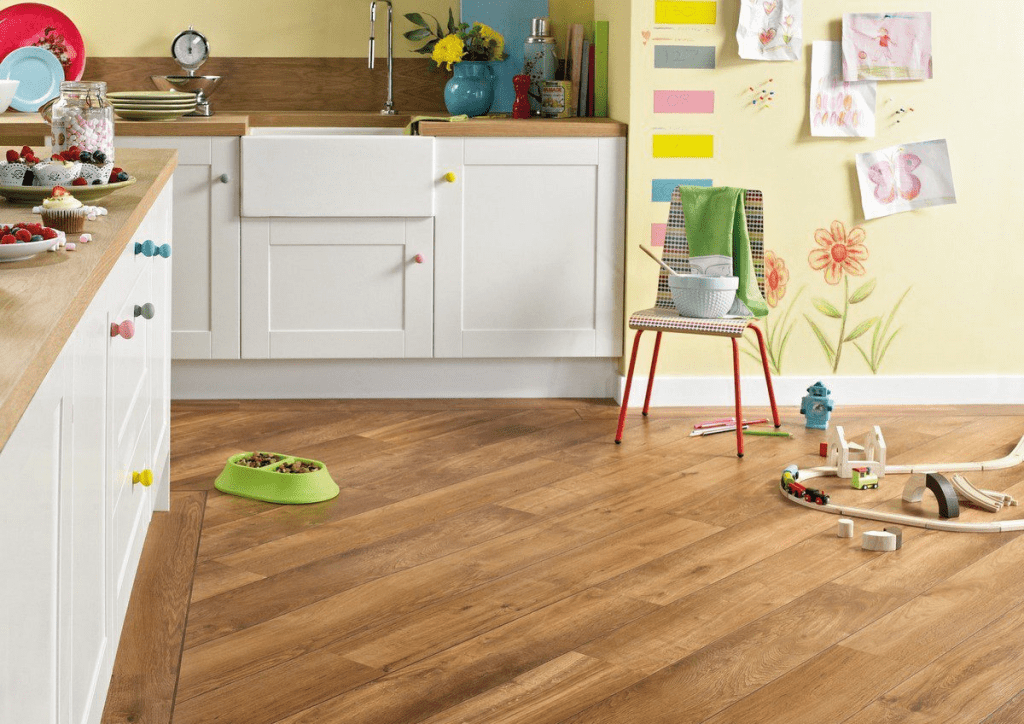

See product: Karndean Van Gogh Gluedown Classic Oak
The Cons Of Vinyl Flooring
Whilst vinyl flooring has numerous benefits, it is essential to consider its drawbacks as well. Some disadvantages of vinyl flooring include its environmental impact, susceptibility to scratches, potential emission of volatile organic compounds (VOCs), comparatively lower durability when compared to other flooring options, and the risk of being slippery when wet.
a. Not eco-friendly
Vinyl is often criticised for not being environmentally friendly due to its manufacturing process, which involves the use of synthetic materials that are not biodegradable. This lack of eco-friendliness raises concerns about sustainability and its impact on the environment.
It is essential to note that advancements in technology have led to the development of more sustainable options in the vinyl flooring industry. LVT (Luxury Vinyl Tile), for example, offers a durable and eco-friendly alternative to traditional materials like hardwood or stone. The recyclability of certain vinyl products has become a focal point for manufacturers striving to reduce their environmental footprint.
b. Prone to scratches
One of the challenges associated with vinyl is its susceptibility to scratches, especially in high-traffic areas or when heavy furniture is moved across the surface. These scratches can detract from the aesthetic appeal of the flooring and may require additional maintenance to repair.
Scratches on vinyl flooring often occur due to the friction caused by dragging heavy objects like tables or chairs without protective padding underneath. Small stones or debris caught under furniture legs can also leave marks on the vinyl surface.
Preventive measures like placing felt pads under furniture legs, using rugs or mats in high-traffic zones, and avoiding dragging heavy items directly on the floor can significantly reduce the likelihood of scratches on your vinyl.
c. Can emit VOCs
Vinyl flooring has the potential to emit volatile organic compounds (VOCs) into the indoor air, especially during the initial installation phase or when exposed to heat. These VOCs can contribute to indoor air pollution and may pose health risks, particularly for individuals with respiratory sensitivities.
Leading manufacturers in the flooring industry, such as Karndean and Luvanto, are aware of the concerns surrounding VOC emissions from vinyl flooring. Companies like Karndean have been actively working on reducing the VOC content in their products to meet stringent environmental regulations and ensure healthier indoor environments. Luvanto, likewise, has implemented innovative technologies and sustainable practices to mitigate VOC emissions in their vinyl products.
d. Not as durable as other flooring options
Compared to some alternative flooring choices like hardwood or tile, vinyl may not offer the same level of durability, especially in high-traffic areas or environments prone to heavy wear and tear. This reduced durability can impact the longevity and performance of vinyl over time.
Factors contributing to vinyl flooring’s lower durability include its susceptibility to scratches, tears, and indentations compared to materials like hardwood or tile. Vinyl may not withstand moisture or extreme temperatures as well as its counterparts, making it less suitable for areas prone to frequent spills or temperature variations.
To maintain the longevity of vinyl, it is essential to implement regular cleaning routines and avoid using abrasive cleaners that can damage the surface. Implementing protective measures such as using felt pads under heavy furniture or rugs can help prevent scratching and indentation, ultimately prolonging the lifespan of the vinyl flooring.
e. can be slippery when wet
One of the safety concerns associated with vinyl flooring is its tendency to become slippery when wet, posing a risk of slips and falls, especially in areas prone to moisture exposure like bathrooms or kitchens. This slipperiness can be exacerbated by certain finishes or improper installation.
Because of its smooth surface and water-resistant nature, vinyl flooring can become a potential hazard when exposed to moisture, creating a slippery environment that compromises safety.
It is essential to consider factors such as the type of vinyl flooring, maintenance routine, and environmental conditions that may contribute to its slipperiness.
Many flooring experts recommend opting for textured or non-slip vinyl options to improve traction and reduce the risk of accidents.
Is Vinyl Flooring Good?
Vinyl offers a range of benefits such as affordability, durability, and easy maintenance, making it a popular choice for various residential and commercial settings.
It is important to acknowledge the limitations of vinyl, such as its susceptibility to scratches and fading over time. When selecting flooring options, one must weigh factors like cost-effectiveness, durability against wear and tear, and design aesthetics matching the overall scheme of the space. This process involves comparing vinyl with alternatives like laminate, hardwood, or tile flooring to determine which best aligns with the specific needs and preferences of the area.
Vinyl is a versatile and durable flooring option that mimics the look of natural materials like hardwood, stone, or tile. It is a popular choice for both residential and commercial spaces due to its affordability and wide range of designs.
Is vinyl flooring good? One of the standout features of vinyl is its remarkable ability to replicate the luxurious aesthetic of hardwood or stone but at a fraction of the cost. This makes it an ideal choice for homeowners and business owners looking to achieve an upscale look without breaking the bank.
Additionally, luxury vinyl flooring (LVT) is known for its durability, water resistance, and easy maintenance, making it a practical option for high-traffic areas.
Final Thoughts and Recommendations
In final consideration, vinyl flooring remains a practical and stylish choice for many homeowners and businesses due to its affordability and design versatility.
For those seeking a touch of luxury, luxury vinyl flooring options at TEKA Flooring Peterborough provide enhanced durability and a premium aesthetic appeal, mimicking the look of natural materials with added benefits.
People would benefit from exploring the wide range of colours, patterns, and textures available in luxury vinyl planks and tiles, offering a customisable solution to elevate the ambience of their spaces.
When contemplating the best flooring type for different areas, opting for waterproof luxury vinyl options could be ideal for high-moisture spaces like bathrooms and kitchens, ensuring long-term durability and easy maintenance.
As varied as individual preferences are, a thorough evaluation of the space’s requirements and style preferences is recommended before making the final flooring choice. If you are unsure about this, let’s make an appointment with our expert now!
Read also:


























